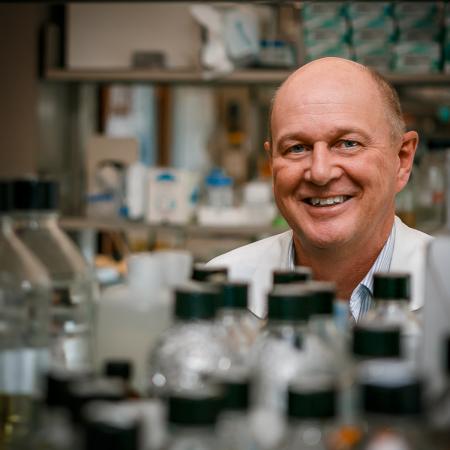As Americans in the 21st century, we take it for granted that antibiotics will cure us from all sorts of infectious diseases. Yet, it is only 100 years ago that 9 out of 1000 women died during childbirth, 30% of children did not survive their first birthday, pneumonia killed 30%, meningitis killed 70% of those who contracted it, and a simple scratch could lead to a serious skin infection.
This all changed with the discovery of penicillin and the subsequent development of a whole range of powerful antibiotics over the course of the second half of the 20th century. Together with improved hygiene and vaccines, antibiotics have saved millions of lives.
However, this achievement in public health is seriously threatened by the emergence of drug resistant pathogens, which are increasing at an alarming rate. The CDC estimates that the annual impact of antibiotic-resistant infections on the U.S. economy is $20-35 billion in excess of direct health care costs, with additional costs to society for lost productivity as high as $35 billion per year and an additional 8 million days in hospitals (Report to the president on combating antibiotic resistance, 2014).
To address this alarming development, the President’s Council of Advisors on Science and Technology (PCAST) recommends a number of actions, including, but not limited to, the strengthening of state and local public health infrastructure for surveillance and response, enhanced pathogen surveillance capability based on genome analysis, and expanded fundamental research to better understand the development of antibiotic resistance that can then be used to design new antibiotics and treatment strategies.
As New York State’s public health laboratory, the Wadsworth Center has made bacterial drug resistance one of its priority focus areas and is directly addressing the PCAST’s recommendations. As part of our Public Health Genomics Initiative, we will develop genomics methods that will directly benefit the State’s surveillance activities, and our bacterial drug resistance research group is focusing on understanding the biology of bacterial drug resistance to allow us to further combat this phenomenon.
To meet this challenge, the goals of the Bacterial Drug Resistance focus group are to actively elucidate mechanisms of resistance to current antibiotics, and to identify novel targets for the next generation of antibiotic drugs. The initial research focus is on Mycobacterium tuberculosis, but the identification of novel drug targets will translate to all bacterial pathogens as the research group expands. The scientific synergy between established scientists in this research group is further enhanced by cross-disciplinary collaborations with investigators in structural biology, public health genomics, and clinical mycobacteriology.
Associated Researchers

Thomas M. Bartlett, PhD
Cell biology of bacterial pathogens
We study the molecular basis of bacterial growth and cell shape determination in critical bacterial pathogens with “unusual” shapes. Our research helps us to understand how bacterial shape contributes to pathogenesis, and identifies vulnerabilities in understudied bacterial growth plans.

Pallavi Ghosh, PhD
Mycobacterial Stress Response
We study transcriptional reprogramming and regulatory networks in mycobacteria controlling resistance to genotoxic stress, hypoxia, nutrient starvation and exposure to antibiotics.

Todd Gray, PhD
Molecular Genetics of Mycobacteria
We use innovative molecular genomic approaches to address fundamental questions of mycobacterial biology. Our findings shed new light on the evolution and function of mycobacterial genomes, accelerating tuberculosis research.

Anil K. Ojha, PhD
Mycobacterial Persistence and Pathogenesis
We investigate the influence of biofilm growth on the mechanisms of pathogenesis, persistence and drug tolerance in mycobacterial pathogens, with particular emphasis on Mycobacterium tuberculosis.

Jon Paczkowski, PhD
Microbial Signal Transduction and Cell-cell Communication
We seek to understand bacterial communication by investigating how bacteria interpret autoinducers and elicit appropriate gene expression, and, more globally, to understand how all organisms decode environmental stimuli.

Janice D. Pata, PhD
Polymerases, Mutations, and the Evolution of Antimicrobial Drug Resistance
We study the molecular mechanisms by which multiple DNA polymerases replicate bacterial genomes completely, with high accuracy and tolerance for DNA damage, yet also create mutations that give rise to antibiotic resistance.

Keith M. Derbyshire, PhD
Molecular Genetics of Mycobacteria
We study mycobacteria and use molecular genetic approaches to investigate: global gene expression, at both transcriptional and translational levels; the mechanism of distributive conjugal transfer; and synthetic genetic interactions.